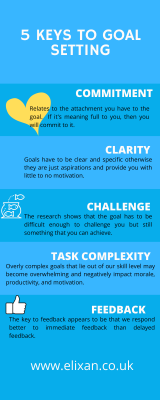Uncategorized
Why You Need to be Setting Goals
Have you ever set a goal and failed?
Example 1: Maybe your goal was “to lose weight” or “get healthier” but you never succeeded or sustained the journey.
Example 2: “I want to run the London Marathon in under 4.5 hours”.
What’s the difference?
Firstly, Example 2 has an outcome to work towards. Now, example 2 does need to broken down into smaller, more achievable goals to get you from where you are now to where you need to be come race day, hence you follow a training programme!
But it has to have an end result to it: an ultimate target, i.e. the day of the event! You now have focus and motivation, something to aim for, something to aspire too.
Now it’s exciting, challenging but still within your reach. Hell, surely not! But is it, gulp, achievable!?! Yep, it certainly is!
Generally, London Marathon training starts in October / November as race day is in April so the majority of training is during the cold, wet, icy, winter months.
But still, there is something that drags you out of bed when it’s peeing down with rain to run 15 miles on a Sunday morning! Damn, this goal-setting might actually work!
Now look back at Example 1. The same scenario, it’s still Sunday morning and it’s still peeing down with rain, you should get out of bed to go for a run but you roll over, back under the duvet, it’s nice there – warm, cosy, comfortable!

See, example 1 is missing every element that good goal-setting needs. It’s general, non-specific, uninspiring and frankly, despite your aspirations, the goals are weak and therefore non-effective!
But, take heart if you are example 1 – you certainly haven’t failed! You have great intentions, they just need refining and some focus.
The old fail to plan, plan to fail adage is screaming at us here isn’t it?
Goal setting is incredibly well researched and used very successfully by businesses and elite level athletes particularly.
Personal Trainers, Life Coaches and Physical Therapists all over the world will also use goal setting with their clients.
Research has continually shown goal-setting to be crucial in the success of elite-level athletes, but regardless of whether your goal / goals are sporting, health, fitness or weight loss, when done correctly goal setting can be extremely motivating and effective in helping you achieve your goals.
The capacity to plan positively impacts our perceived control over goal outcomes and our future (Vincent, Boddana, & MacLeod, 2004).
The Power of Positive Goals
When structured poorly, like our example 1, goal setting can be demotivating and may create more problems than it solve.
For example, if goals are used with a threat of negative consequences, stress and anxiety can be increased (Locke, 1996).
Health and weight loss goals can easily become negative in nature without the individual realising it, so it’s crucial that any goals you set are positive.
Here’s a great example from positivepsychology.com to change this negative goal “I want to stop eating so much junk food” into a more positive term like “I want to feel healthy and will change my diet in order to do so”.
With negative goals, the initial motivation often comes from a place of negativity, for example, “I want to stop eating so much junk food because I feel unattractive”. These negative connotations can lead to self-criticism and de-motivation.
Whereas, failure to achieve a positive goal is viewed as an indication that while we may have failed at least we are still on the right path.

Why is Goal Setting so Important?
Goal setting can be extremely powerful and motivating. However, it’s crucial that goals follow the SMART acronym. Well thought out goals will inspire, motivate and excite you.
They will help keep you focused and remind you why you are on the journey you are. Let’s look at weight loss again as it’s often a great example.
It’s never linear. It can plateau, go up (even when you are trying to get it to go down!) and of course, ideally, go down (but not always as quickly as you want!). So, the nature of it will at times create negative feelings in regard to your progress.
This is where your goals (they should be written down!) can be crucial in reminding you of what the bigger picture is and what your end goal is.
When goals are written down you are more likely to stick them and it’s then simple to revise your goal. In fact, continually reviewing and revising your goals is paramount to your success.
Remember work, family, relationships can all impact your goals so reviewing and revising them is a huge aspect of successful goal setting.
According to positivepsychology.com
Through the experience of success and the positive emotions that accompany it, confidence and belief in our own abilities grow.
Goal setting involves planning for the future. MacLeod, Coates & Hetherton (2008) found that goal setting and skill-oriented planning significantly improved subjective well-being in those who took part in a goal-setting intervention program.
Thinking positively about the future bolsters our ability to create goals and consider the actions required to achieve them. The capacity to plan positively impacts our perceived control over goal outcomes and our future (Vincent, Boddana, & MacLeod, 2004).
In the late 1960s, Dr. Edwin Locke and Dr. Gary Latham were pioneers on research into goal setting and through their research, they settled on five principles of goal-setting:
Commitment. Relates to the attachment you have of the goal. If it’s meaning full to you, then you will commit to it. According to Locke & Latham (1990), goal performance is strongest when people are committed, and even more so when said goals are difficult.
So, make them personal, difficult and be committed!
Clarity. Goals have to be clear and specific otherwise they are just aspirations and provide you with little to no motivation. Remember above how example 1 motivated you so much for that run you rolled back over to sleep!
Challenge. The research shows that the goal has to be difficult enough to challenge you but still something that you can achieve. Too difficult and it will lead to feelings of demotivation and failure. Running the London Marathon is difficult but still achievable – hence the bar has been set high enough but not too high. And, conversely, goals shouldn’t be easily achieved as they may leave you feeling underwhelmed.
Task complexity. Miner (2005) suggested that overly complex tasks introduce demands that may mute goal-setting effects. Overly complex goals that lie out of our skill level may become overwhelming and negatively impact morale, productivity, and motivation. (https://positivepsychology.com/goal-setting/).
This makes perfect sense, anything too difficult for us becomes demotivating and interest can quickly fade, but dangle the carrot just enough and we constantly strive to reach that goal!
Feedback. Not sure why, but to me, feedback always sounds like something negative is on its way! The key to feedback appears to be that we respond better to immediate feedback than delayed feedback. At work, feedback might be from an external source, such as your boss!
But your goals are personal to you, so internal feedback will be your cue where you can immediately review your progress and then start planning ahead again.

♥ Goals that are both specific and difficult lead to overall improved performance. Comparisons between the effect of non-specific goals such as “I will try to do my best” and specific, challenging goals suggest that people do not tend to perform well when trying to ‘do their best’. A vague goal is compatible with multiple outcomes, including those lower than one’s capabilities (Locke, 1996).
♥ People with high efficacy are more likely to set challenging goals and commit to them. Individuals who sustain belief in their abilities under the pressure of challenging goals tend to maintain or even increase their subsequent goals, thereby making improvements to ensuing performances. Conversely, individuals who lack this confidence have a tendency to lower their goals (making them easier to achieve) and decrease their future efforts (Locke, 1996).
♥ Goals motivate people to persist in activities over time.
♥ Challenging goals are more likely to result in outcomes that are valued by the individual.
Achievement Goals
Achievement goals are generally split in to Performance Goals and Mastery Goals.
Performance Goals are summarised by proving an ability or lack of. For example this Sunday “I want to run 5k sub 20 minutes”. There can be positives and negatives to this type of goal depending on whether you achieve it or not!
Feelings towards the outcome will depend on the type of person.
A couple of scenarios, a positive person may achieve that goal and then set their next one. Likewise, they may miss the 20-minute mark but reset the goal to run sub 20 mins after 1-month further training.
These goals often, but not always, suit a confident person with high self-esteem. Elite athletes often set Performance Goals.
Mastery Goals are centred around achieving or mastering a particularly skill. Mastery Goals can be less demanding psychologically when compared to Performance Goals.

As you can probably relate to now, fitness and health is often driven by Performance goals! How much can you lift, how far can you run, how much weight can you lose.
Very few in the fitness industry focus on Mastery Goals. However, a very fine example of one that does is Gold Medal Bodies (GMB) I’ve followed GMB for many years, purchased a few of their programmes along the way, and generally like the way they roll. They are very focused on mastering skills than hitting “gym numbers”.
Both Mastery and Performance Goals have their merits and probably suit different personalities in different ways but I can’t help feel “fitness” has become far too driven by Performance Goals.
I like to teach people how to do things properly. The deadlift is one of my all-time favourite exercises and I believe it should be part of everyone’s gym routine.
It’s a technical exercise to learn but I believe a skill well worth learning.
So, a great Mastery Goal would be learning how to perform a really good deadlift – above focusing on how many calories you have burned on the Cross Trainer!
So, be realistic about what you can achieve.
Set three goals, it’s fine to have one over riding final goal but for that to become a reality you will need short term goals to get there and of course, make your goals positive!
3 Goals
Shot Term Focus
Positive Goals

Goal Setting for Weight Loss
Example!
Let’s make a goal that you to lose 1 stone in weight in 8 weeks. This is possible, it’s a challenge, but still realistic.
Write it down.
Goal 1. “I want to lose 1 stone (6kg) in 8 weeks, this will make me feel and look great for my holiday!”
That is goal 1!
Rule of thumb for sensible weight loss is 1-2lb a week. 2lb week x 8 weeks is 16lb. 14lb in 1 stone. Sorry for the simple math!
You will have to be focused and committed here, not much room for slacking off!
Sssshh (some of it might be from water retention, not all fat!) but either way you will feel and look great!
Now, you need 3 goals so I would tie 2 more goals into the one above, that’s plenty to start with.
So, how are you actually going to do this? Lifestyle and dietary changes are needed here, aren’t they!?
Remember, dietary changes will have a far, far bigger impact than exercise on your weight. Without dietary changes, exercise will not shift as much weight as you want.
With that in mind, let’s make a dietary goal!
Calories in and out is not the be-all and end-all of weight loss, but as I wrote here (The First Thing You Need to do to Lose Weight) it’s one of the most important aspects to start with.
Goal 2. “I will only consume 2000 calories or just under for the first 2 weeks (you can log your food intake through myfitnesspal) I will then assess my progress and restrict my daily calorie intake to 1600 if needed”.
Goal 3 could be an exercised based one. To lose weight the science says you need to be in a calorie deficit of 500 calories, this can be achieved via food or exercise or both. Both is best!
Goal 3. “I will attend the gym 3 times per week for 1 hour, every week for the first 4 weeks and then assess my progress”.
Three simple, achievable goals. Of course, the gym could be switched to going for a run, fast walk, swim or cycle!
Simple isn’t it? So, now it’s over to you to create your own goals!
Please note the NHS state 1800 – 2000 is an acceptable daily calorie intake for a woman. The figures I have used above are just examples.

The Golden Rule to Goal Setting
The golden ticket of goal setting is usually based around the acroymn SMART
S specific
M measurable
A achievable
R realistic and Relevant
T timed
Let’s re-evaluate goal 1 “I want to lose 1 stone (6kg) in 8 weeks, this will make me feel and look great for my holiday!”
Does it meet the SMART criteria? Well.
Specific? It’s specific for sure.
Measurable? Yes, I can easily measure my weight loss as I progress week by week.
Achievable? Actually this is tougher than some of you may think (don’t forget goals should challenge you!) do there’s not much wiggle room here! But, yes it’s achievable.
Realistic and Relevant? It’s very relevant isn’t it.
Timed? You bet it is – 8 weeks! You could, of course, put a date on it.
I personally like to make SMART goals SMARTER.
SMARTER
E = Enjoy. If goals or the process of achieving goals isn’t enjoyable then it becomes very difficult to maintain adherence. If you hate the gym then there are lots of options like dance classes, squash or badminton with your best friend or partner or even joining a boxing club!
R = Review & Revise. As I said throughout the blog, reviewing your progress and then revising your goals accordingly is paramount to your success!
Here is What You Need to do right NOW!
- Decide on what you want to achieve.
- Write down 3 SMART goals.
- Focus on short term goals, say 1 – 4 weeks.
- Keep the goals positive!
- Share them with your partner, close family member or best friend – this makes you accountable to someone!
- Do something positive, regardless of how small, right now, today that helps you reach your goal (s).
Do you need help reaching your goals?
Conclusion
Goal setting is seriously under utilised in our personal life but all the research points to it being very effective in assisting us achieve what we want.
With things like this, just think KISS – Keep it Simple Stupid!
Don’t over analyse too much, grab a pen paper and write down what you want to achieve and few key points in how you will get here.
Remember SMART – Keep Goals Positive – And Review and Revise as you go!
Ref: https://positivepsychology.com/goal-setting/


